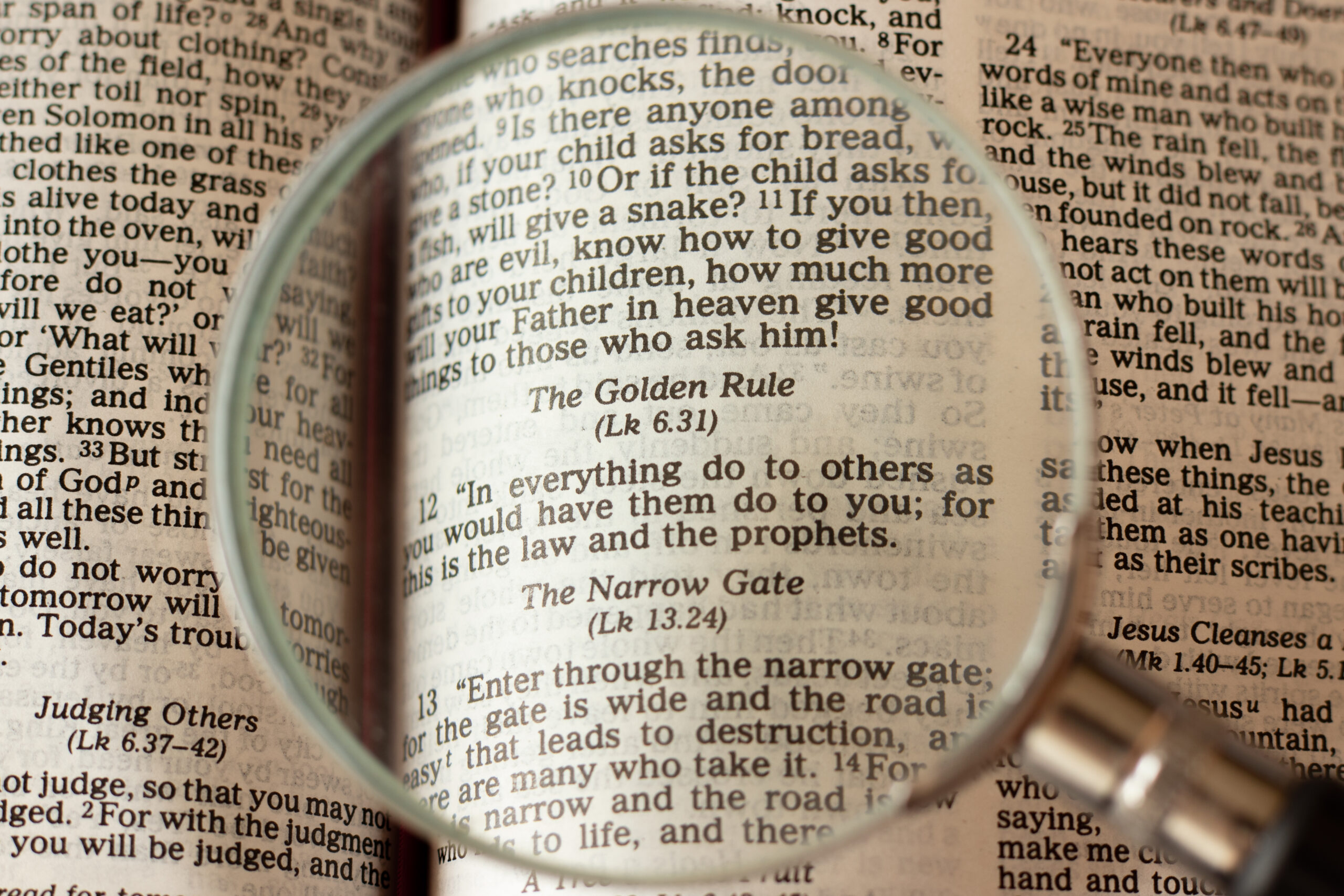“But to you who are listening I say: Love your enemies, do good to those who hate you, bless those who curse you, pray for those who mistreat you. If someone slaps you on one cheek, turn to them the other also. If someone takes your coat, do not withhold your shirt from them. Give to everyone who asks you, and if anyone takes what belongs to you, do not demand it back. Do to others as you would have them do to you. -Luke 6:27-31
The scriptures are full of demanding teachings. These commandments from Jesus often push us into uncomfortable territory. One of the most challenging teachings of Jesus is found in the Gospel of Luke. It is a version of the saying that we often refer to as the “Golden Rule.” The most notable version of the Golden Rule is found in Matthew’s Gospel. It reads, “So in everything, do to others what you would have them do to you, for this sums up the Law and the Prophets.” (Matthew 7:12)
In the Gospel of Luke, Jesus expands his teaching on the Golden Rule. Building on the simple and direct version found in Matthew’s Gospel, Jesus challenges the church to see that the love of neighbor must be extended to everyone. Luke 6:32 says, “If you love those who love you, what credit is that to you? Even sinners love those who love them.” Our commandment to love others seems to include people we might consider undesirable, objectionable, even our enemies.
Sharing God’s love with the world is an intentional act, based on God’s love for us and our desire to share that love with the world. Our love for others and our acts of kindness are not based on the other person receiving our love; rather, our love is motivated by the love of God in our own hearts. Being kind to others, especially our enemies, is no easy task. The commandment of our Lord Jesus is clear. We are to “Do to others as you would have them do to you.”
As a people of faith, we often need to be reminded of our responsibility to love. We are called to love everyone. We are called to love our friends and family. We are called to love the person who cuts us off in traffic. We are called to love our political allies and opponents. We are called to love the people who look different, think differently, and act differently. We are called to love the people who offend us.
The commandment to love our neighbors is a challenging teaching of Jesus because no exceptions are listed in the scriptures. It seems that Jesus intends for us to love everyone. To love others requires us to speak with grace, act in kindness, and serve others. This is the example Jesus set for us. Let us look to this teaching and the example of Jesus so that we can share God’s love and bring hope to the world.
Rev. Keith King, Pastor of Worship



